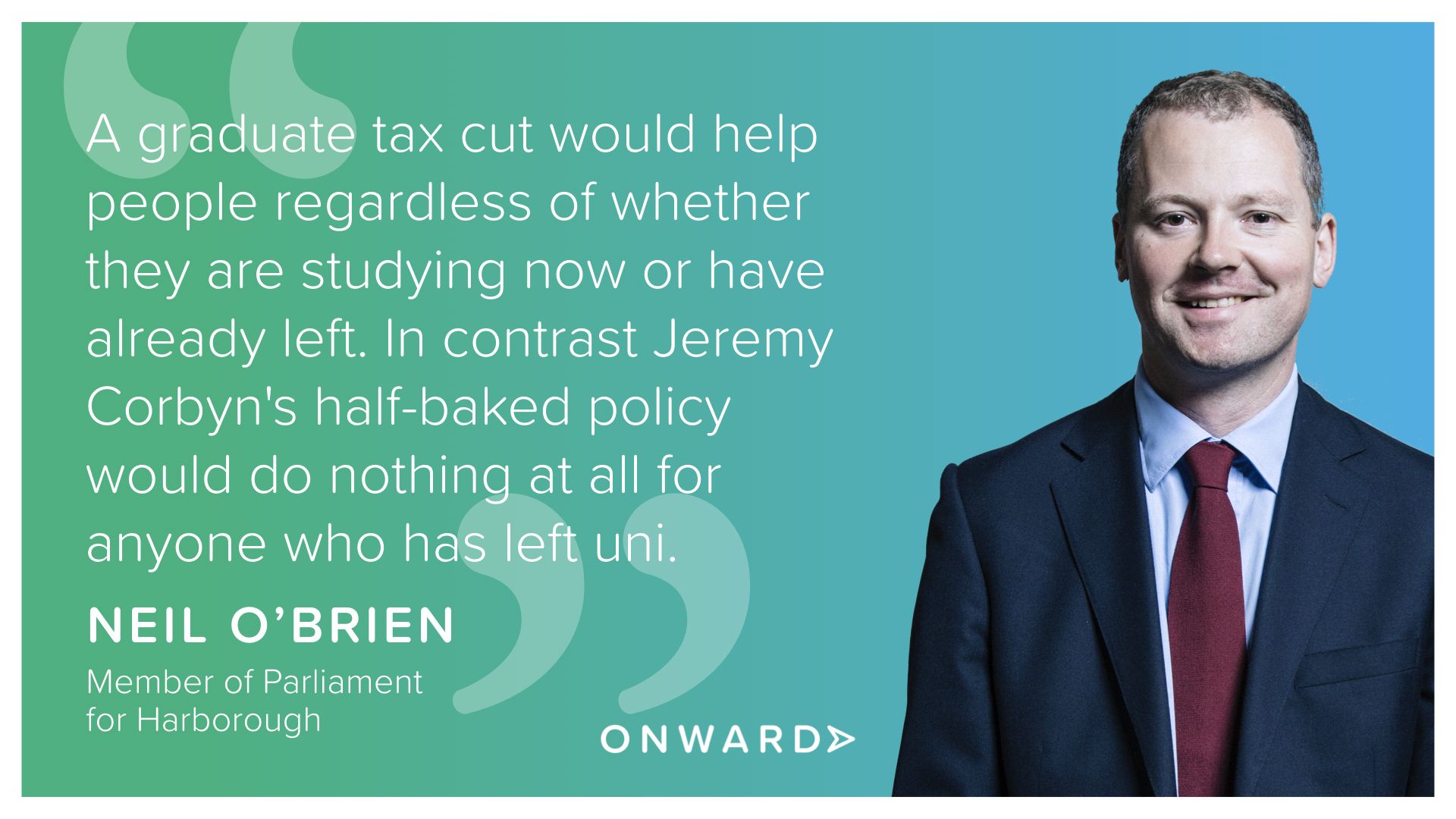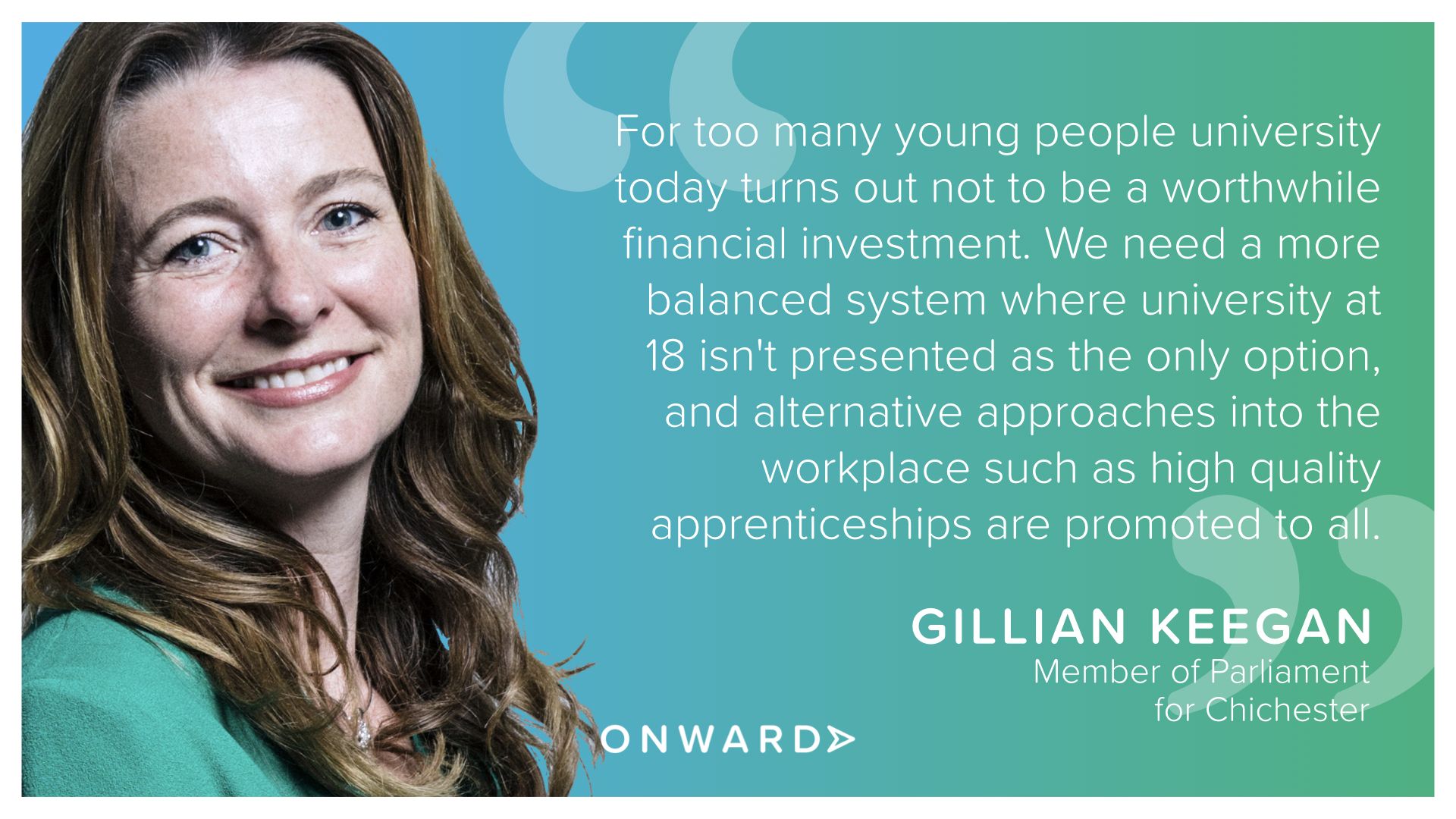Cut graduates’ taxes and pay for it by reducing the number of low value university courses

On Monday 7 January, Onward published a new policy paper on higher education funding, “A question of degree. Why we should cut graduates’ taxes and pay for it by reducing the number of low value university courses“.
It argues for a new graduate tax cut to halve the amount that graduates repay on their student loans and a reduction in low value university degrees that deliver weak earnings for graduates and poor value for money for taxpayers.

The paper, authored by Neil O’Brien MP, Will Tanner and Guy Miscampbell, contains a new analysis of official DfE data on long-term earnings outcomes for higher education, which reveals:
Between 18 and 25 per cent of graduates are studying degrees which fail to deliver a lifetime earnings premium that justifies the £50,000 cost of a student loan.
In 2015-16, 40 per cent of graduates were enrolled in courses which led to median earnings of less than the student loan repayment threshold of £25,000 after five years. 10 per cent of students were enrolled in courses with median earnings of less than £25,000 ten years after they have graduated. This represents 134,000 students each year who won’t be paying back anything even ten years after they leave university, yet will have accumulated significant interest.
1 in 5 graduates are no better off five years after graduating than if they had chosen to do a non-university route, such as an apprenticeship instead, when foregone earnings and apprenticeship premium is taken into account.
According to exclusive polling for the report, 44% of people believe that “there are too many students going to university”, compared to just 25% who believe there are not enough. The number who believe there are too many student places rises to 47% of those with a Bachelor’s degree, suggesting that those who go to university do not feel they receive the benefits of doing so.
The report makes a number of recommendations to curb the flow of students into low-value courses and to help hard pressed graduates, including:
- Reduce access to courses that deliver low economic value in terms of graduate earnings premia, by either making the charging of £9,250 fees conditional on course earnings potential or introducing a grade floor for low value courses to redirect students into routes with a higher return.
- Encourage students to gain qualifications through a better and expanded technical education system, especially through higher level technical qualifications and apprenticeships, which deliver higher earnings premia than many university degrees.
- Introduce a graduate tax cut of 50p in every pound to halve the loan repayments of 2 million graduates. This has the advantage over reducing fees or changing future repayment terms as it would apply to anyone repaying their loan, past, present or future, while putting cash back in the pockets of young people.
Exclusive polling for this report reveals that:
- 44 per cent of people believe that “there are too many students going to university”, compared to just 25 per cent who believe there are not enough, and 35 per cent who believe there are the right number.
- The number who believe there are too many student places rises to 47 per cent of those with a Bachelor’s degree, suggesting that those who go to university do not feel they receive the benefits of doing so.
The report contained a foreword from both Neil O’Brien MP and Gillian Keegan MP.

The report is timed to feed directly into the Government’s independent review of post-18 higher education funding, led by Philip Augur.











Responses